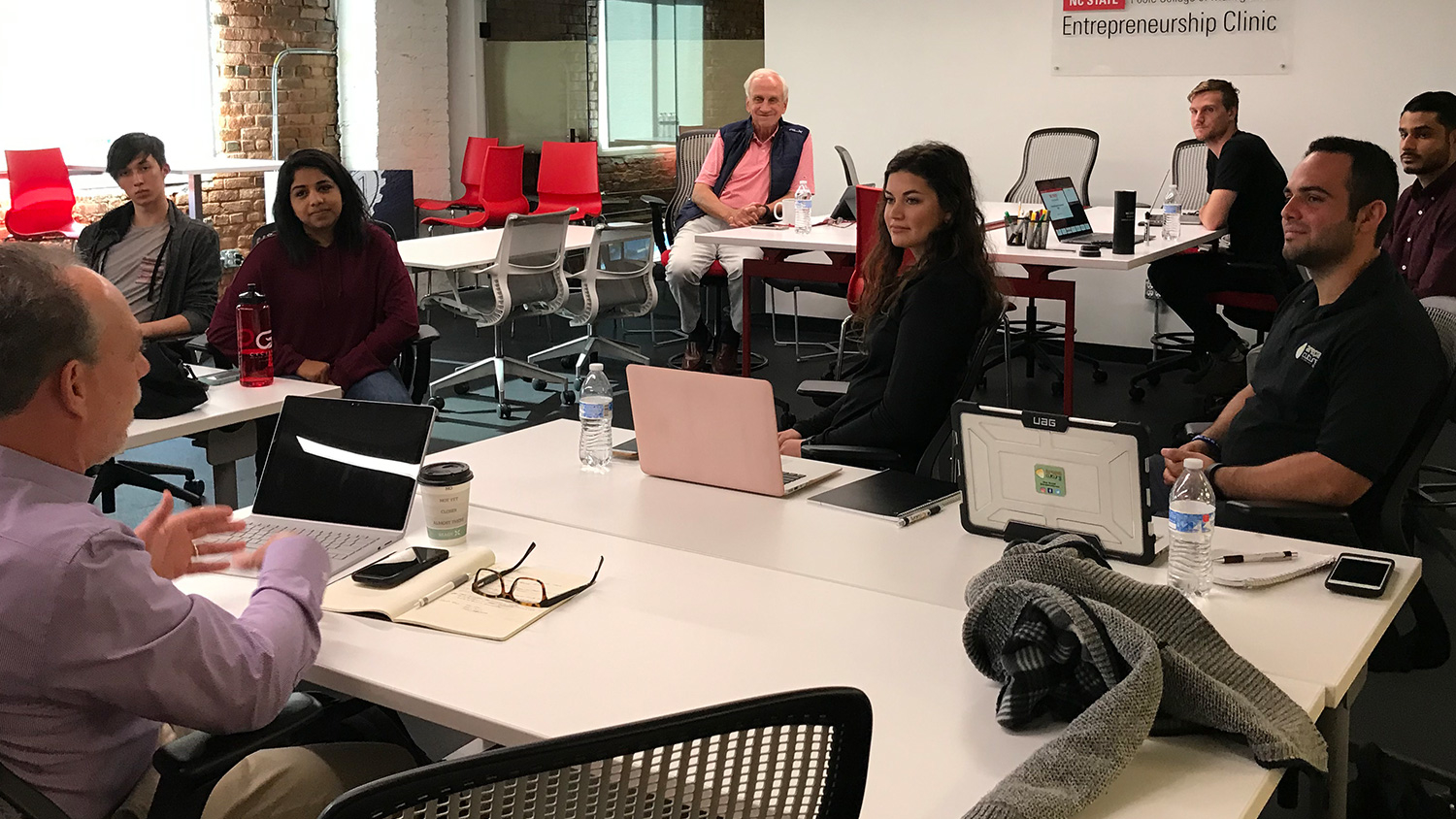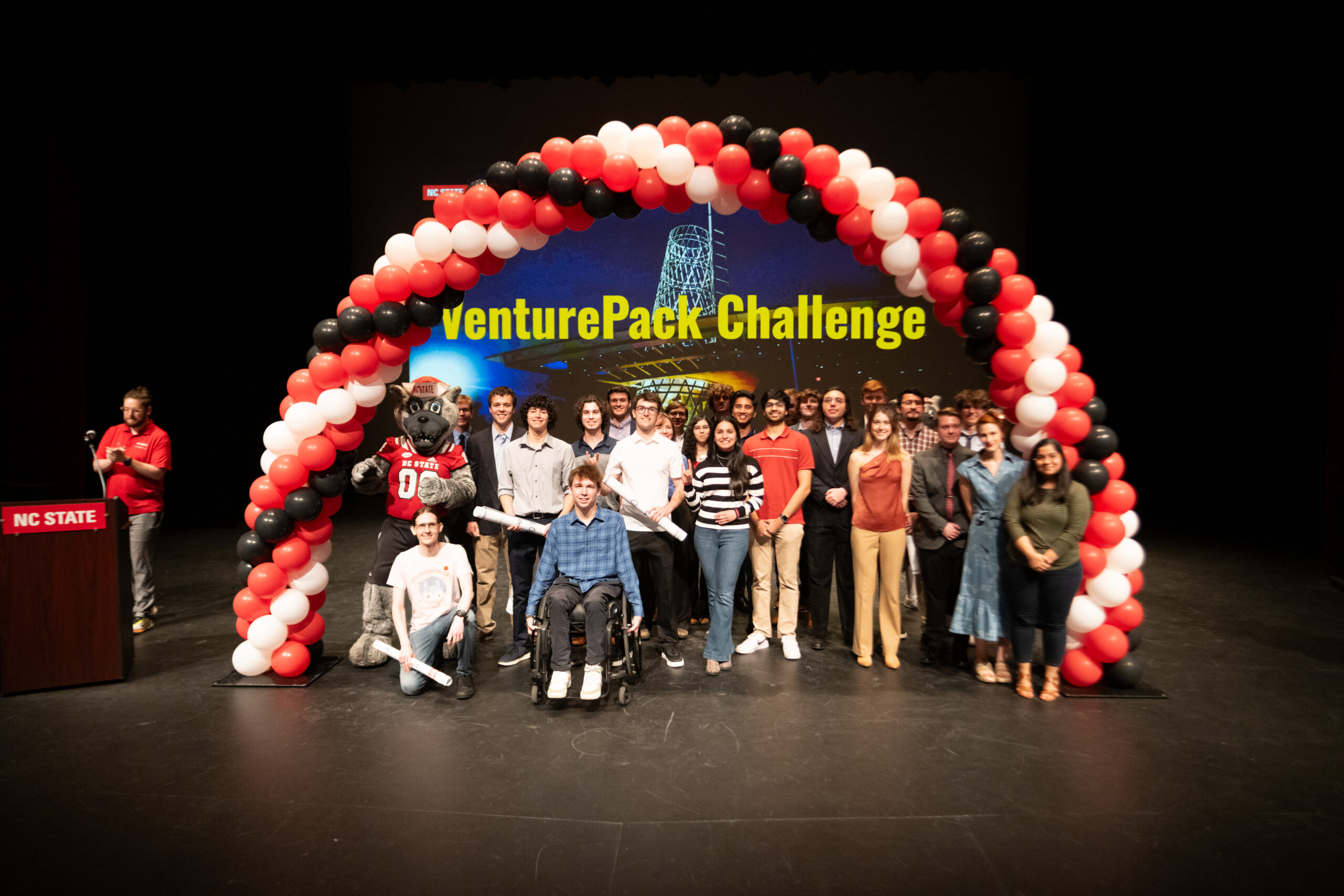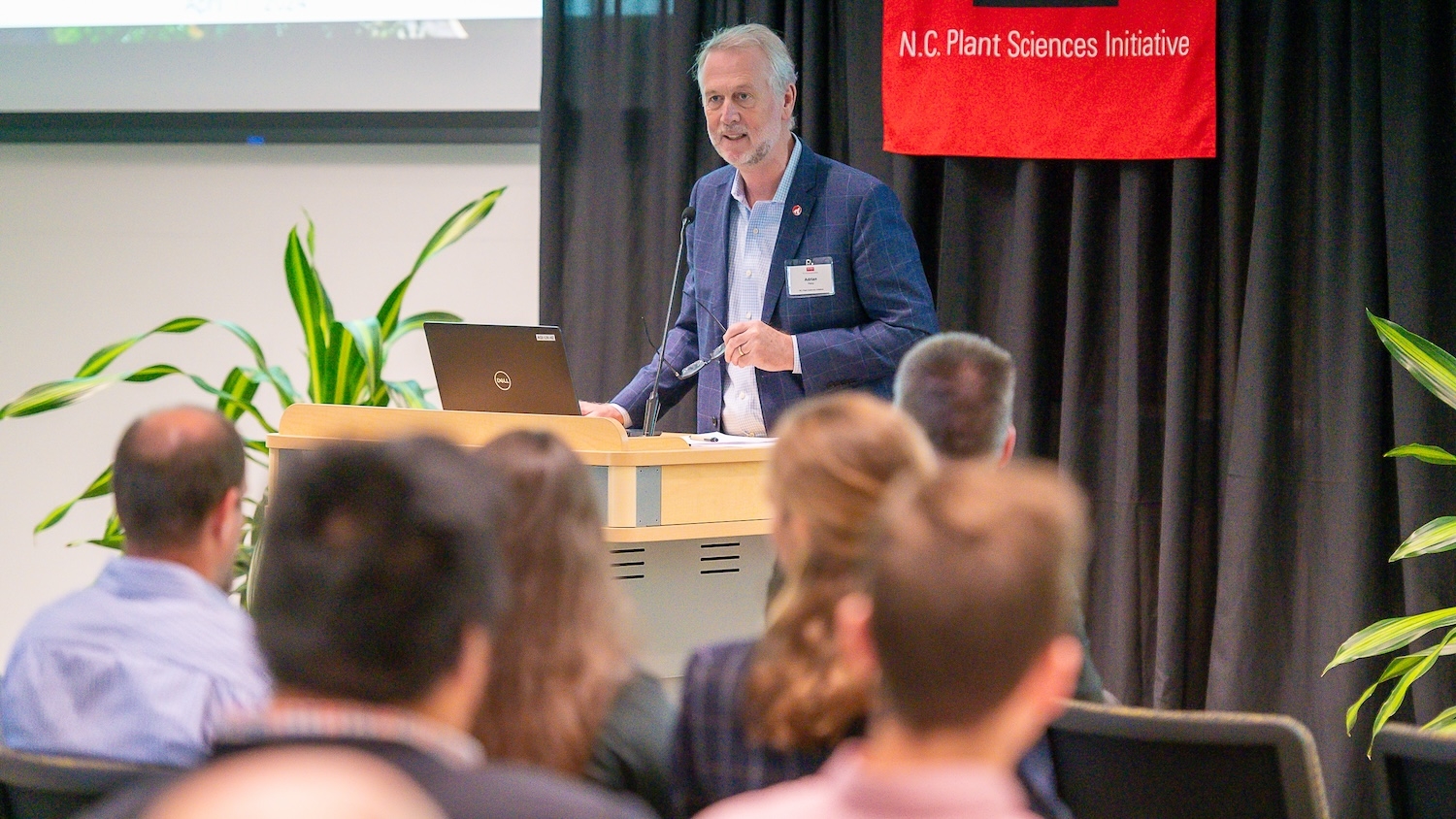Andrews Launch Accelerator: Season Four Reflects Growth in the Program and Startup Teams

The three teams participating in the Andrews Launch Accelerator’s 2019 season were “diverse in so many ways,” said Chip Andrews, NC State alumnus and former chairman and CEO of FMI Corporation. A $1 million gift commitment that he and his wife, Lyn, made in 2016 launched the program that is based in the NC State Entrepreneurship Clinic at HQ Raleigh.
The teams – Arepa Culture, Freshspire and Tennisbloc – represent ventures in food retailing, streamlining the farmer-to-grocer relationship, and technology-based tennis league management.
“They’re different, but they all needed to learn about how to best structure their firms, how to identify and deliver maximum value to their customers, and how to grow their talents in ways that their chosen markets will reward,” Andrews said in an email interview after the Andrews Launch Accelerator (ALA) 2019 Demo Day on August 20.
That’s when the 2019 teams gave updates on their progress to an audience of about 40 entrepreneurs, professors, alumni and friends – the largest gathering to date for the event, said Gabe Gonzalez, ALA program manager.
“The Accelerator can be tuned to adjust to their unique needs,” Andrews said. “It’s been fun to watch them grow.”
“The teams showed tremendous growth in their thought process,” Gonzalez said. “It’s extremely satisfying to see how much they grew from day one until Demo Day. Through their engagement in the Accelerator, they interacted and received advice from over 60 industry experts. They were also able to really narrow down their strategy, value creation, and future goals,” he said.
“One of the biggest hurdles we see in the startup ecosystem is intellectual honesty: The ability for founders to think critically about a problem or situation, look for insight, and tackle the challenge directly,” Gonzalez said. “I am really happy about how this cohort molded to those concepts and applied them to their personal development as leaders and to their company. I’m really excited about their updates and what lies ahead for them.”
It has also been “a learning experience for the entrepreneurs and for the sponsors,” Andrews said. “Every team will have their own differences, but we can always improve our selection processes and our development processes. We are doing a better job of identifying teams that have a higher probability of success. That’s not just identifying the strength of their concept, but also examining the capabilities, competency and complimentary nature of their members.
“Also, our programmatic development for the Accelerator has substantially improved,” Andrews said. “Gabe has recruited dozens of resources to help guide the growth of our teams. Each team needs at least one dedicated mentor, and every team benefits from subject matter experts on various components of building a successful startup,” he said, noting that the “Accelerator only works with experienced entrepreneurs and talented support professionals willing to give back.
“Lewis Sheats, our assistant vice provost for entrepreneurship at NC State, has done a terrific job in recruiting our entrepreneurial support group for our mentoring program, for the E-Clinic and for the Accelerator. We have an active group of over 50 volunteers that make our programs successful,” Andrews said.
Following are the 2019 Andrews Launch Accelerator team mentors:
- Arepa Culture: Tyler Helikson, founder & CEO of Happy and Hale
- Freshspire: Tom Collopy, serial entrepreneur and advisor
- Tennisbloc: Lelon Winstead, entrepreneur and investor. He also coached a team-building session.
The teams’ polished Pitch Night presentations reflect the impact of the Accelerator. “I’m proud of these teams,” Gonzalez said. “They showcased what we want NC State founders to represent: Driven and disciplined leaders pursuing ambitious goals.”
The Demo Day program included brief presentations by three prior ALA participants:
- Malcolm Benitz, CEO of Medicom (ALA 2016), provided an update on his company and upcoming fundraising goals.
- Zach Fearnside and Steven Guido (ALA 2018), founders of Aeva Labs, shared their latest progress with closing paying customers.
- Karly Pavlinac (ALA 2018), shared her company’s rebrand to WAAM and its recent investment round from Cofounders Capital.
Read about the 2019 ALA Teams
Arepa Culture NC: Arepa Culture provides a fresh, made-from-scratch, hand-crafted and 100 percent gluten-free meal option based on a popular fast food in Caracas, Venezuela.
Pedro Jara started preparing and selling the meals as a food truck business after emigrating to the Raleigh area. Now his son, Marcel, a Poole College undergraduate student, is building on that foundation, creating “The next BIG concept in fast-casual food,” he said. Mentorship through the Launch Accelerator helped Jara and his team to update their business model, to include fast-casual restaurants, a mobile app for ordering ahead, catering, third-party local delivery, and expanding their food truck fleet. The team’s members are Alexa Presas (NC State, Psychology, 2019), Hannia Jara, Pedro Jara and Marcel Jara.
Freshspire: “Powering Local Food Communities” is Freshspire’s focus. It does so through a subscription service that brings all B2B sourcing needs into one place, making it easier to buy from local vendors. Its services include robust order management and communications, data analytics, a reliable network and supply chain transparency. Customers cite streamlined and efficient ordering processes with Freshspire. The startup’s team members are Shraddha Rathod, CEO; Matt Simson, chief technology officer; and Ziwa Mukungu, lead front-end developer. Their mentors include industry experts in food technology and business insight.
TennisBloc: Lee Kincheloe, TennisBloc’s founder and chief executive officer, showed how its “new way of thinking” can improve the management of tennis teams through integrated data-driven dashboards.
“Every once in a while, a new technology, an old problem, and a big idea turn into an innovation.” That was a key message in Kincheloe’s presentation, which showed a target audience of 4,800 tennis league coordinators who work with 10 million league players in the U.S. Saving time and improved team communications were key value points cited by tennis team administrators and individual players.
On the TennisBloc team with Kincheloe are Jackson Bowen, chief human resources officer and operations supervisor, and Grant Yentzer, lead web developer. Their ALA advisors were Lewis Sheats, executive director of the NC State Entrepreneurship Clinic, and Tom Conley, founder of Bulk TV & Internet, which was acquired by Marlin Equity Partners.
This post was originally published in Poole College of Management News.


